Managing client appointments efficiently can make or break your law firm’s success. With 82% of potential clients abandoning their search for legal services when they can’t easily schedule consultations, choosing the right attorney appointment scheduling software has become mission-critical for modern practices.
The legal industry has witnessed a dramatic shift toward digital-first client experiences. Gone are the days when clients patiently waited on hold to schedule appointments or accepted weeks-long delays for consultations. Legal consumers expect instant access, seamless booking experiences, and professional communication throughout their journey.
The Importance of Professional Appointment Scheduling
Attorney appointment scheduling software serves as the gateway to your legal services, creating first impressions that influence client decisions and referral likelihood. Research conducted by the American Bar Association reveals that firms using dedicated scheduling software experience 67% fewer missed appointments and generate 43% more consultations than those relying on traditional phone-based systems.
Beyond convenience, modern scheduling software addresses fundamental challenges plaguing legal practices: double bookings, scheduling conflicts, inadequate client preparation, and administrative inefficiencies. These platforms integrate calendars, automate confirmations, collect intake information, and provide analytics that help optimize your practice’s performance.
The competitive advantage extends far beyond operational efficiency. Firms offering online scheduling attract younger demographics, improve client satisfaction scores, and position themselves as forward-thinking organizations that embrace technology to deliver superior service experiences.
Calendly for Legal Professionals: Simplicity Meets Sophistication
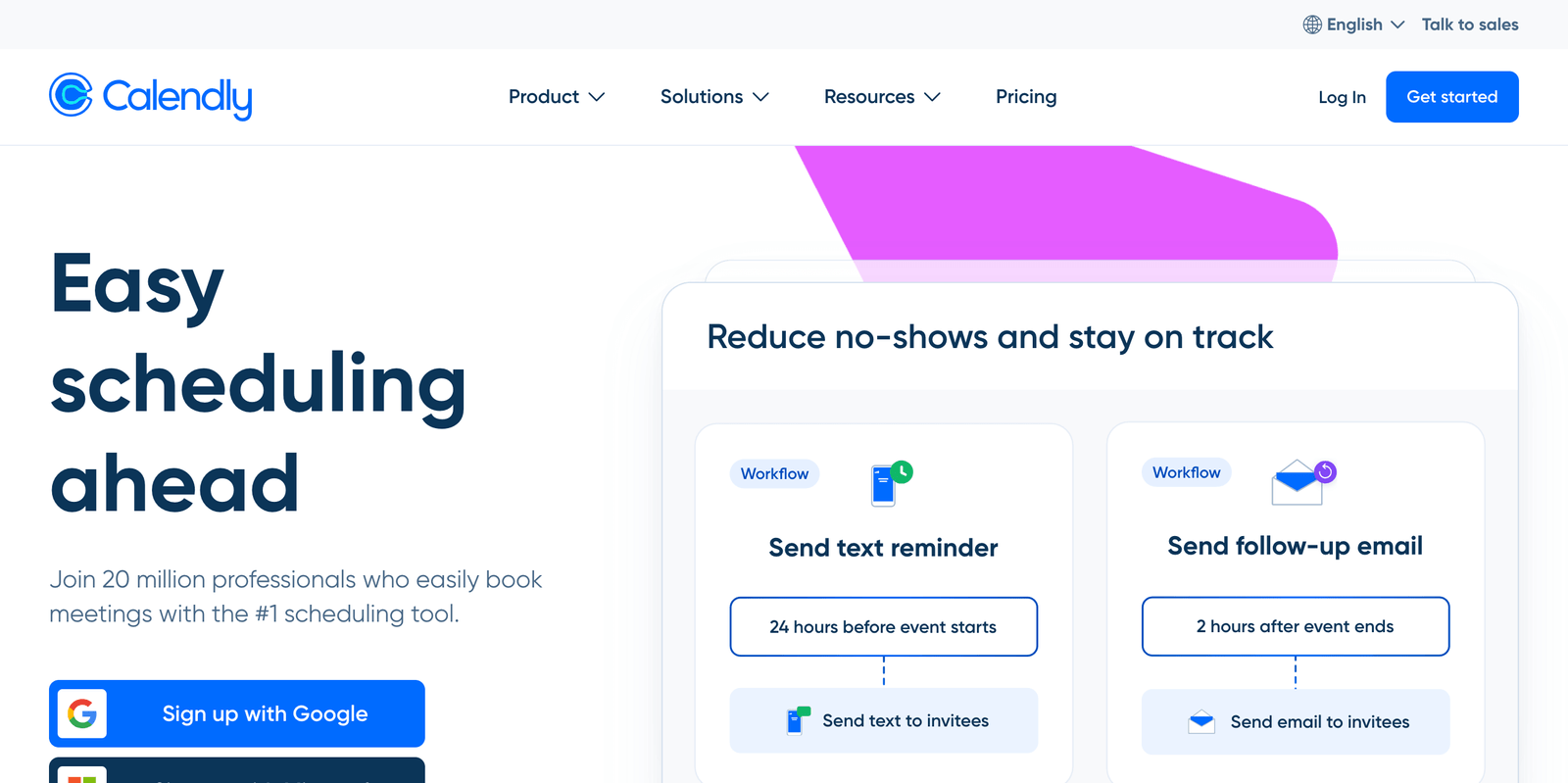
Calendly has revolutionized appointment scheduling across industries, and its legal-focused features make it particularly attractive for attorneys seeking straightforward solutions. The platform excels in user-friendly design, offering clients intuitive booking experiences while providing attorneys robust calendar management capabilities.
Key strengths include seamless integration with popular calendar applications, automated reminder systems, and customizable booking pages that reflect your firm’s branding. Calendly’s buffer time settings prevent back-to-back appointments, while its scheduling restrictions ensure meetings occur only during designated business hours.
The platform’s analytics dashboard provides valuable insights into booking patterns, helping attorneys optimize their availability and identify peak demand periods. However, Calendly lacks advanced features like conflict checking and matter-based scheduling that larger law firms require.
Acuity Scheduling: Advanced Features for Growing Practices
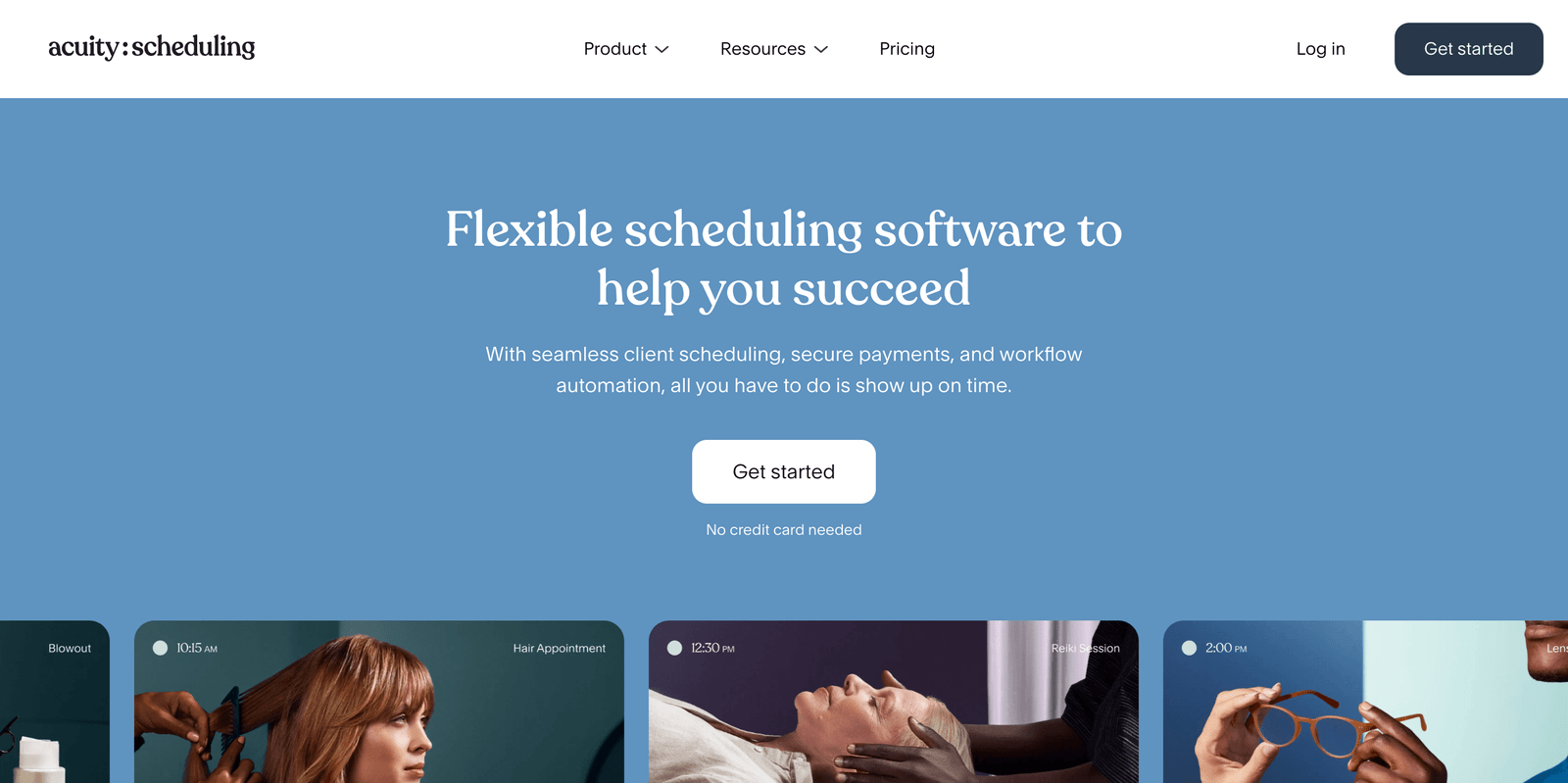
Acuity Scheduling delivers comprehensive appointment management with features specifically designed for service-based businesses like law firms. The platform’s strength lies in its flexibility, offering extensive customization options for booking forms, scheduling rules, and client communication workflows.
Notable features include intake form integration, package scheduling for multi-session services, and robust reporting capabilities. Acuity’s client portal allows individuals to reschedule appointments, reducing administrative burden on your staff while improving client satisfaction.
The platform supports multiple appointment types, making it ideal for firms offering various services like consultations, depositions, and client meetings. Advanced scheduling logic prevents conflicts while accommodating complex scheduling requirements that traditional systems struggle to handle.
LawTap: Purpose-Built for Legal Excellence
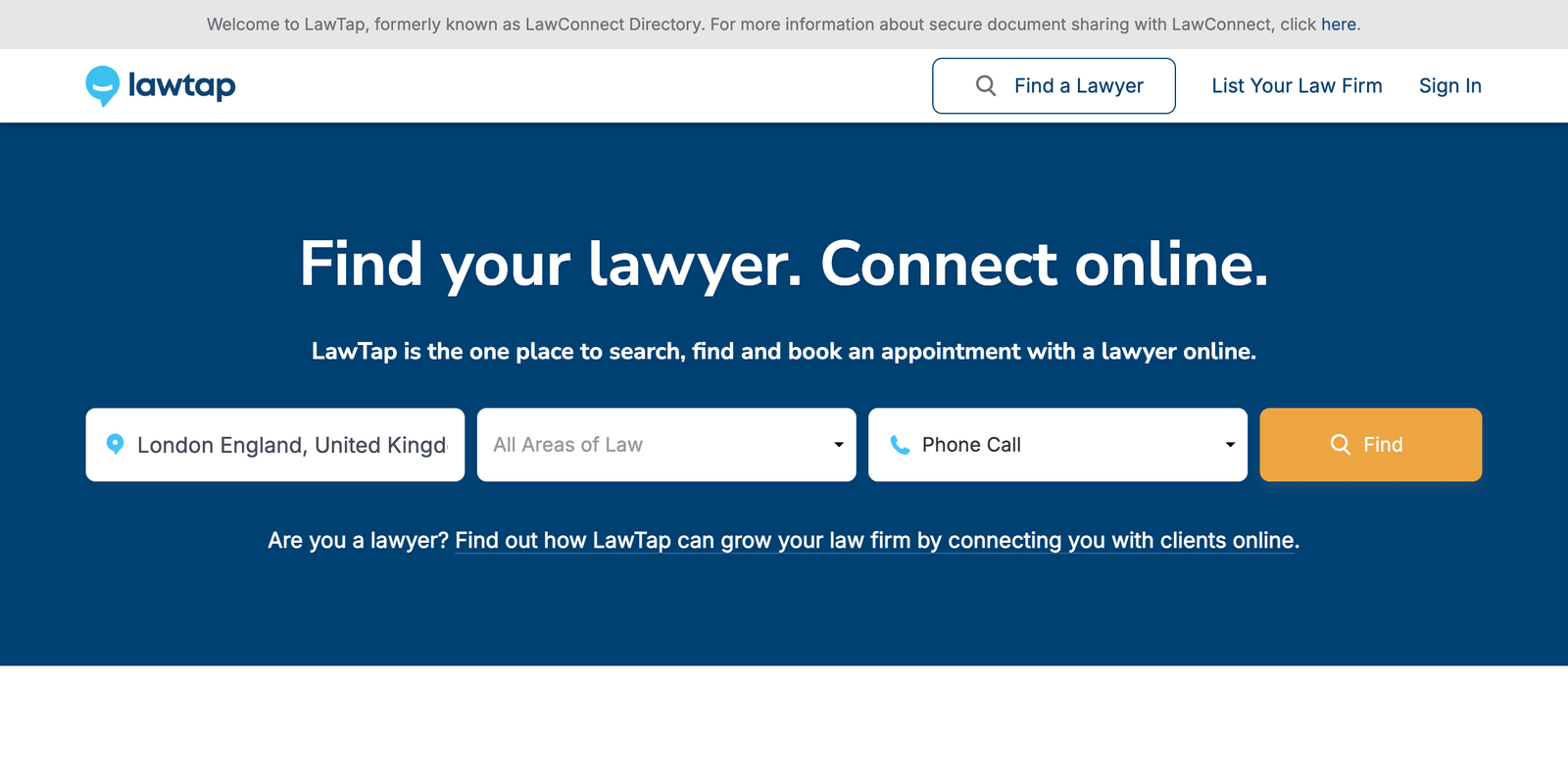
LawTap represents the gold standard for attorney-specific scheduling software, offering features tailored exclusively for legal practices. The platform addresses unique challenges facing law firms, including conflict checking, matter-based scheduling, and compliance with legal industry regulations.
Distinguished features include automated conflict detection, retainer collection integration, and detailed client intake workflows. LawTap’s billing integration ensures accurate time tracking from consultation scheduling through case completion, streamlining your firm’s revenue cycle.
The platform’s comprehensive reporting provides insights into consultation conversion rates, scheduling efficiency, and client demographics. These analytics help attorneys optimize their practices while identifying growth opportunities and operational improvements.
MyCase Scheduling: Integrated Practice Management Excellence
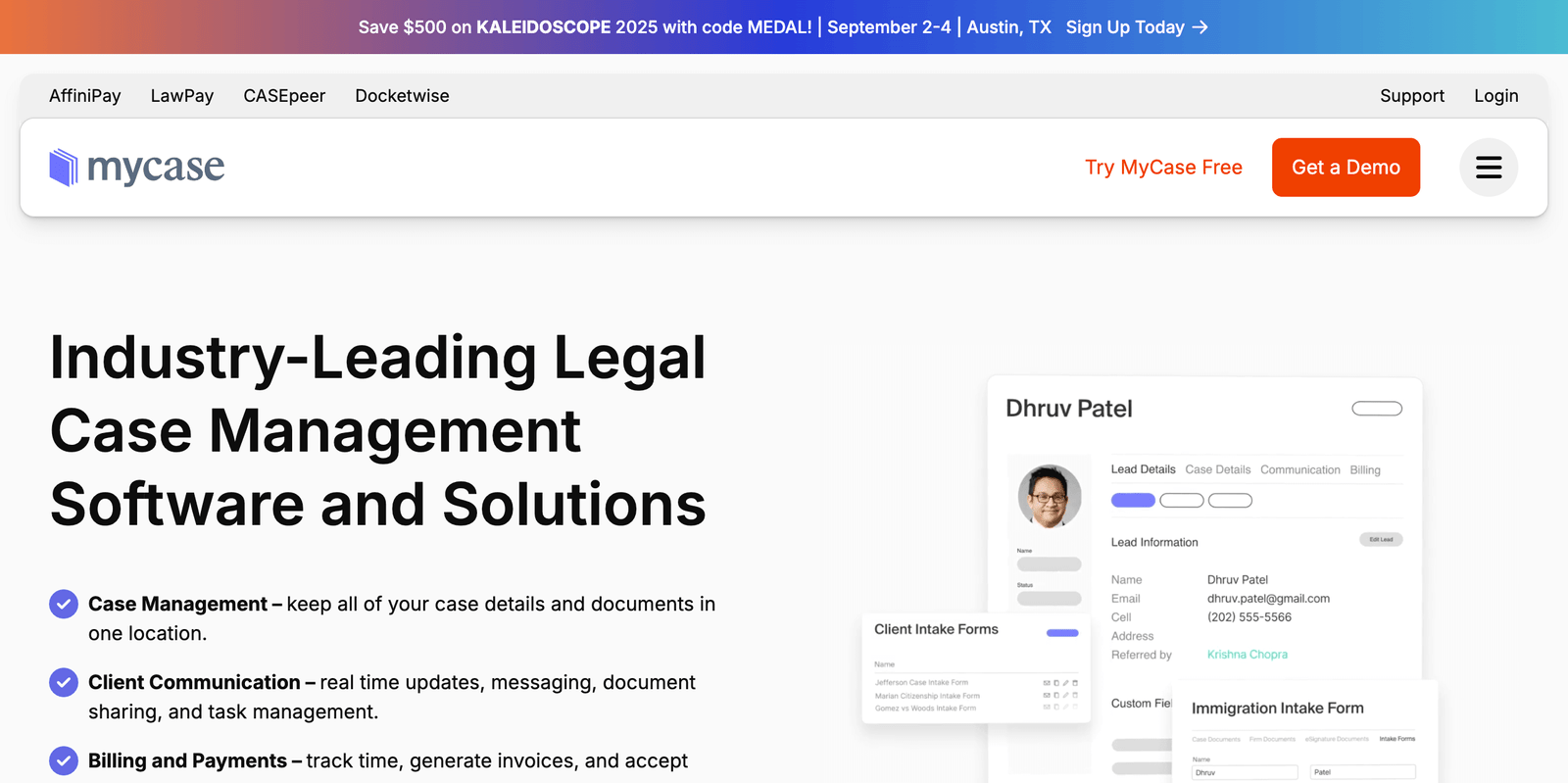
MyCase offers appointment scheduling as part of its comprehensive practice management suite, creating seamless workflows from initial client contact through case resolution. This integration eliminates data silos while ensuring consistent client information across all platform modules.
The scheduling component excels in calendar synchronization, supporting multiple attorneys and staff members within unified scheduling interfaces. Automated confirmation and reminder systems reduce no-show rates while keeping clients informed about upcoming appointments.
MyCase’s client portal enhances the scheduling experience by allowing clients to view upcoming appointments, access case documents, and communicate securely with their legal team. This comprehensive approach creates professional client experiences that differentiate your firm from competitors.
Setmore: Cost-Effective Solutions for Solo Practitioners
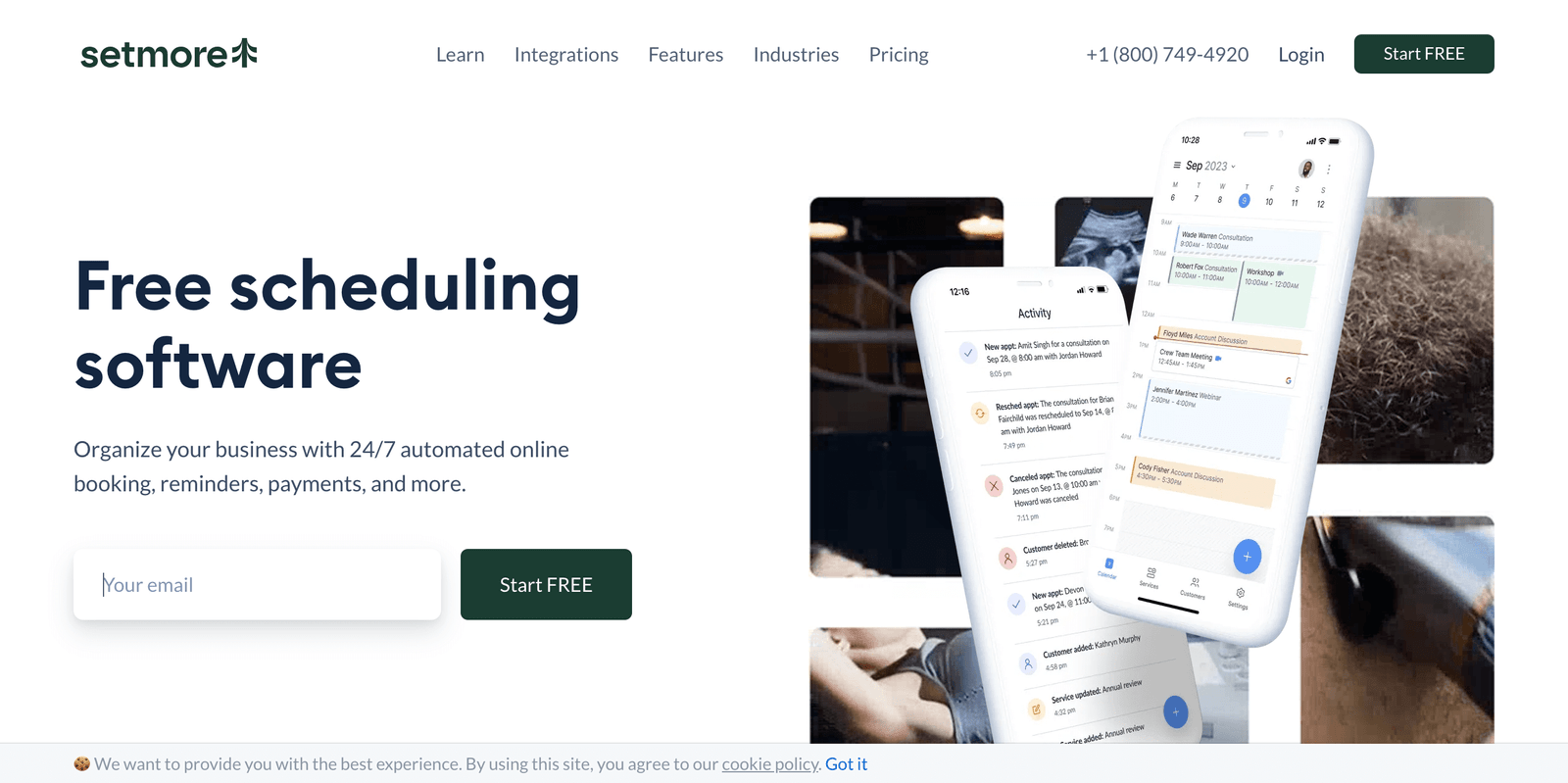
Setmore delivers powerful scheduling capabilities at price points accessible to solo practitioners and small firms. The platform offers essential features including online booking, calendar integration, and automated reminders without requiring significant financial investment.
Key advantages include unlimited appointments, staff scheduling support, and mobile applications that enable scheduling management from anywhere. Setmore’s booking widget integrates seamlessly with law firm websites, creating professional scheduling experiences that reflect your brand identity.
The platform’s simplicity makes it ideal for attorneys who need reliable scheduling without complex features. However, larger firms may find Setmore’s capabilities limiting as their needs become more sophisticated.
TimeTrade (Engageware): Enterprise-Level Scheduling Power
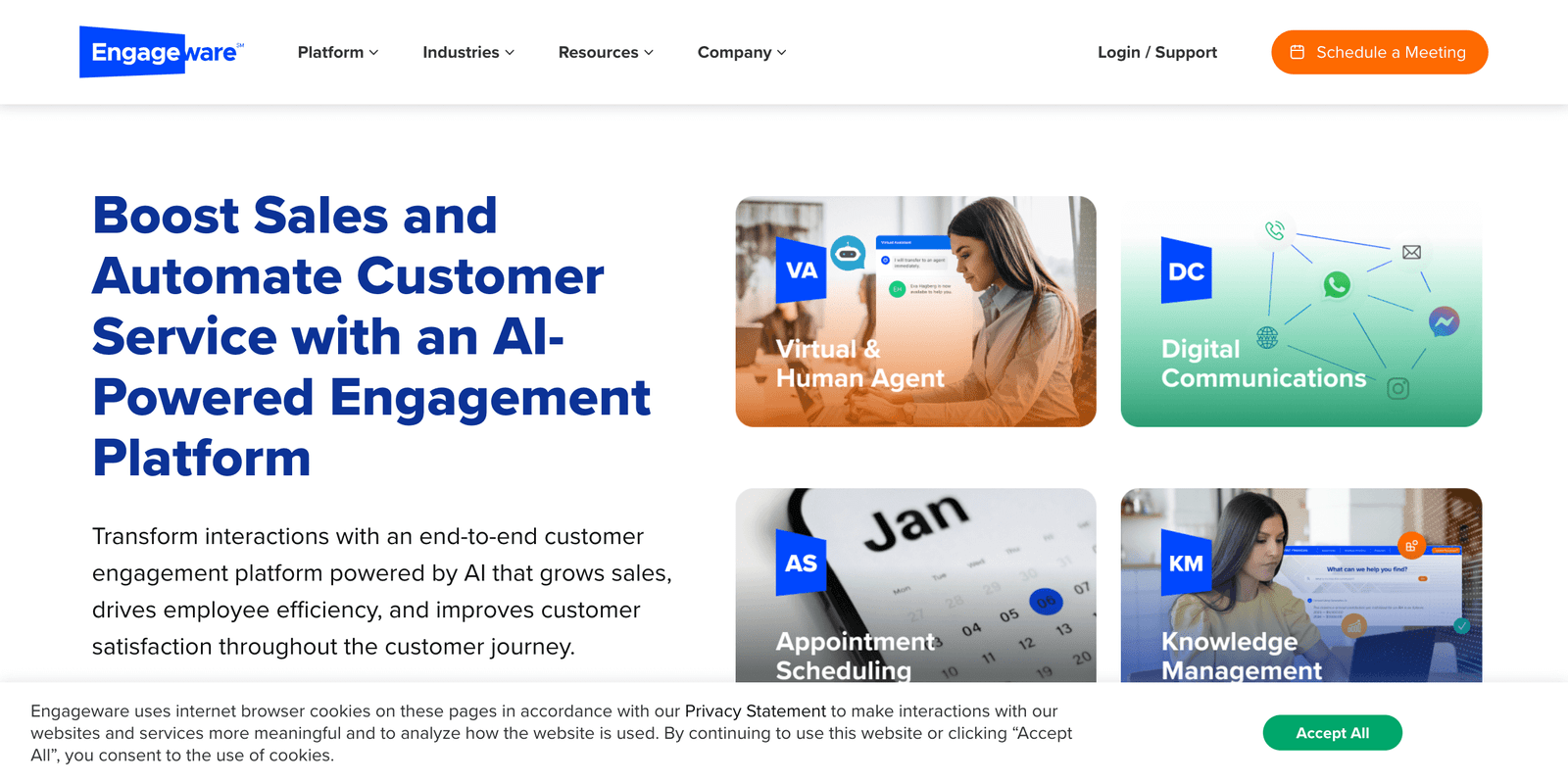
TimeTrade caters to larger law firms requiring enterprise-level scheduling capabilities with advanced security and compliance features. The platform excels in managing complex scheduling scenarios involving multiple attorneys, practice areas, and office locations.
Distinguished features include sophisticated routing logic, advanced conflict detection, and comprehensive reporting dashboards. TimeTrade’s API connectivity enables custom integrations with existing practice management systems, creating unified workflows that eliminate duplicate data entry.
The platform’s scalability makes it suitable for rapidly growing firms that need scheduling solutions capable of accommodating expansion without requiring system replacements. However, TimeTrade’s complexity may overwhelm smaller practices with simpler scheduling needs.
SimplyBook.me
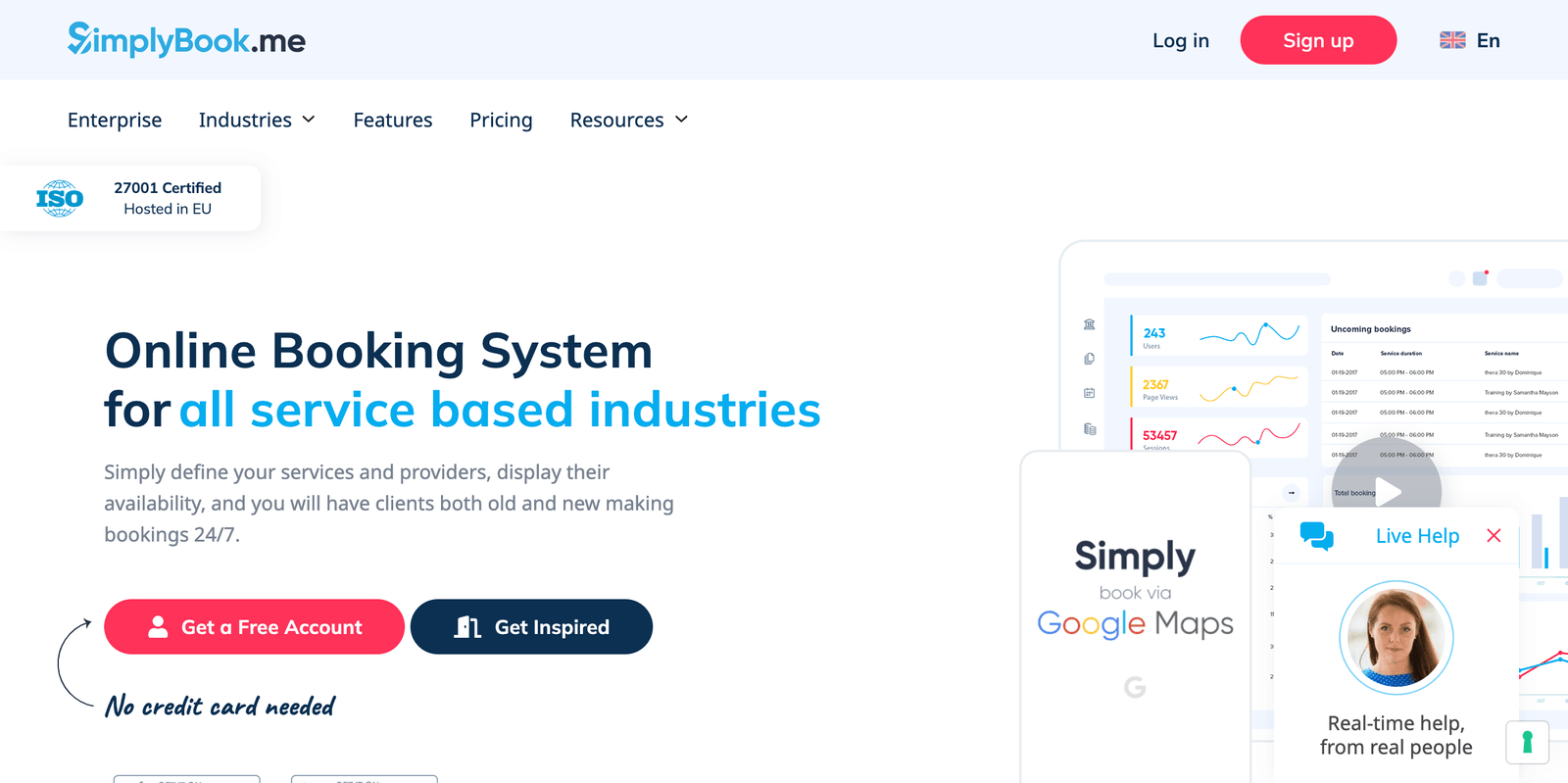
SimplyBook.me offers robust scheduling capabilities with features particularly beneficial for legal practices. The platform supports complex booking scenarios while maintaining user-friendly interfaces for both attorneys and clients.
Notable features include custom booking forms, payment integration, and advanced notification systems. SimplyBook.me’s resource management capabilities enable firms to schedule conference rooms, equipment, and support staff alongside attorney appointments.
The platform’s flexibility allows extensive customization of booking workflows, making it suitable for firms with unique scheduling requirements or multiple service offerings. Comprehensive reporting provides insights into utilization rates and scheduling efficiency.
ScheduleOnce (Now OnceHub): Advanced Automation and Intelligence
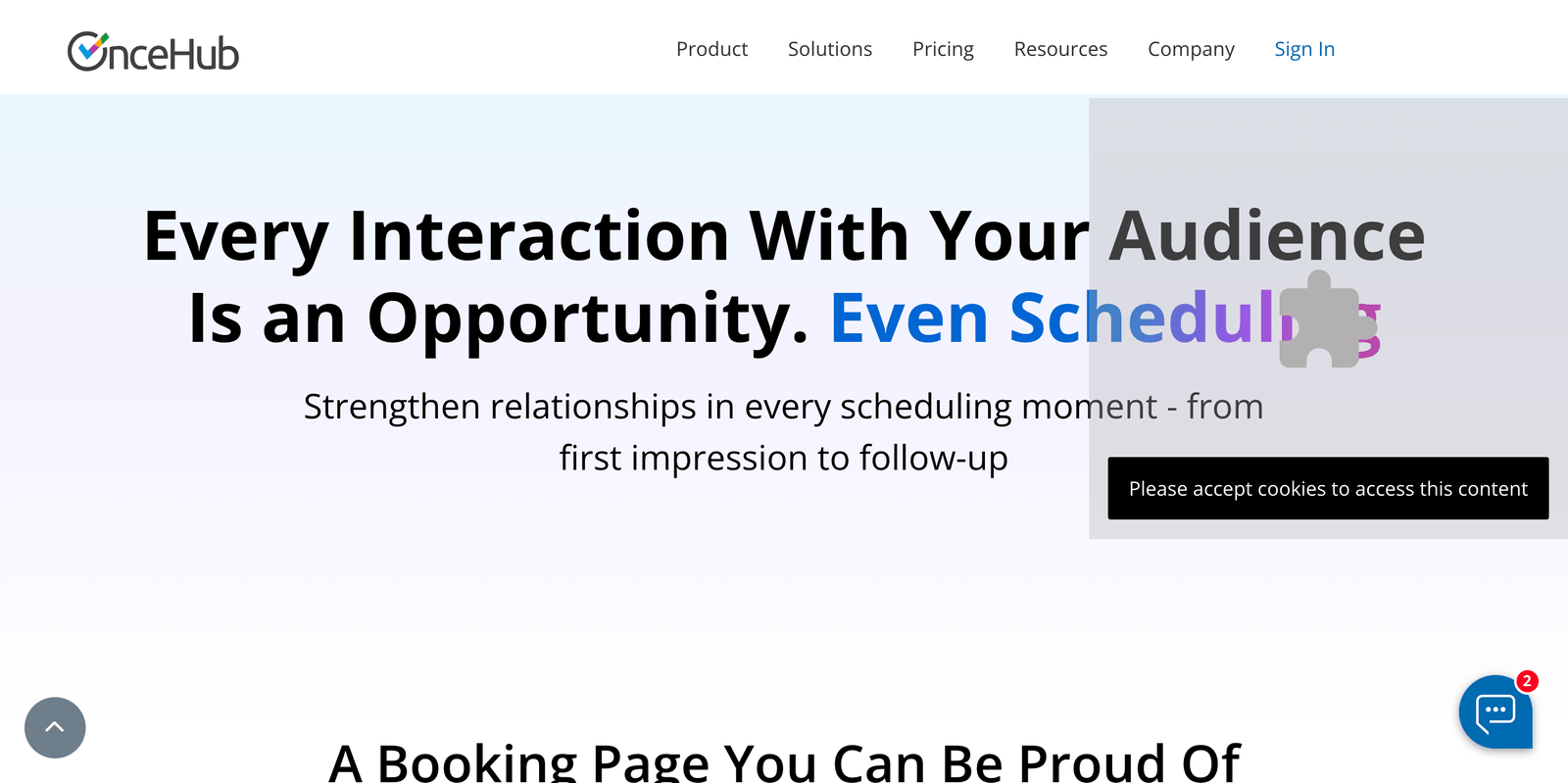
ScheduleOnce leverages artificial intelligence to optimize scheduling processes, automatically finding optimal meeting times while considering all participants’ availability. This sophisticated approach eliminates back-and-forth communication while ensuring convenient appointment times.
The platform’s strength lies in handling complex scheduling scenarios involving multiple participants, different time zones, and varying availability patterns. Advanced routing rules ensure clients connect with appropriate attorneys based on practice areas and expertise.
Comprehensive analytics provide insights into scheduling patterns, conversion rates, and client preferences. These data-driven insights help attorneys optimize their availability and improve consultation conversion rates.
Appointy: Affordable Excellence for Growing Firms
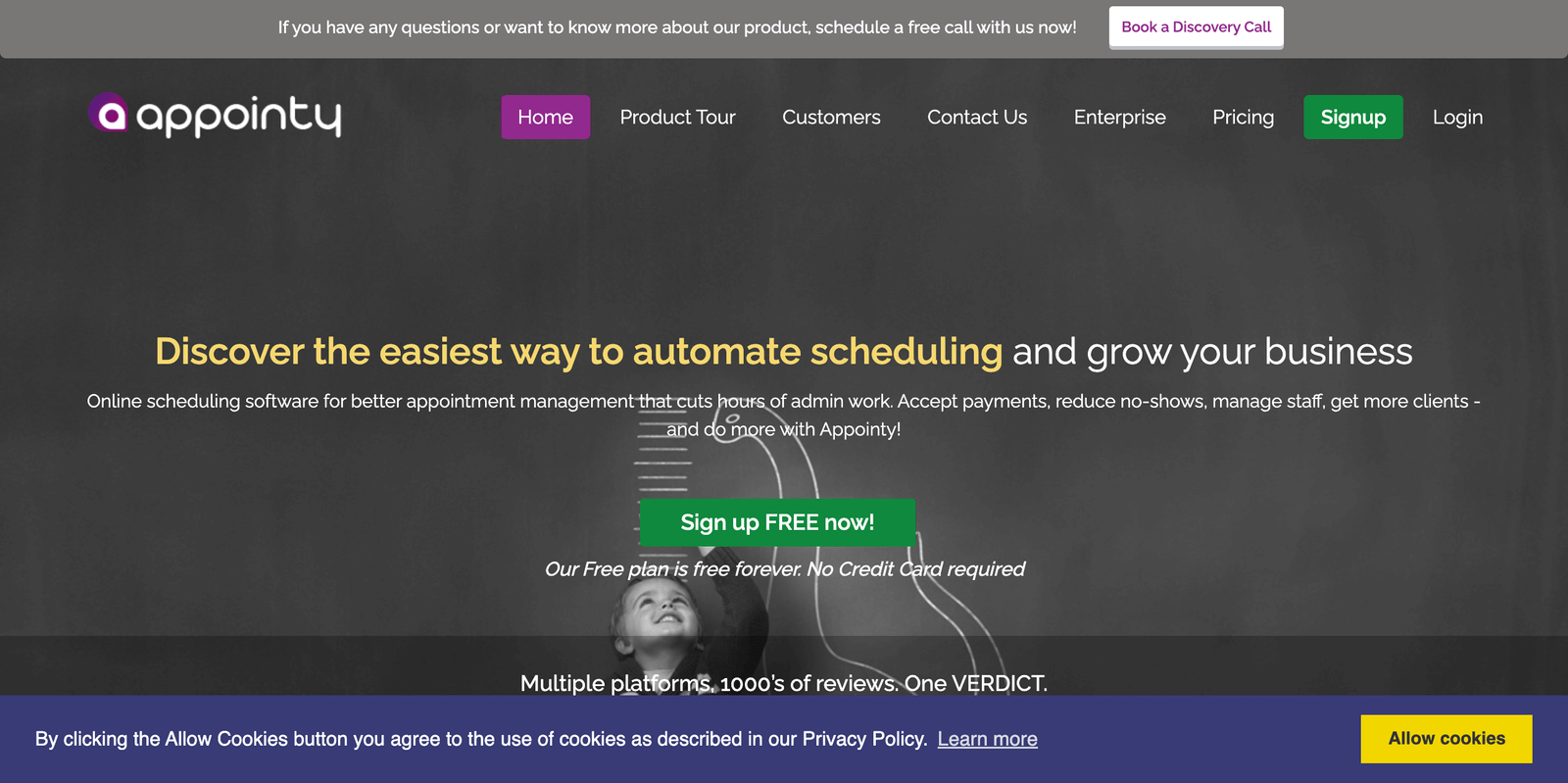
Appointy delivers comprehensive scheduling capabilities at competitive price points, making advanced features accessible to firms of all sizes. The platform offers extensive customization options while maintaining simplicity in daily operations.
Key features include multi-location support, staff scheduling, and integrated payment processing. Appointy’s client management capabilities extend beyond scheduling to include communication history, appointment notes, and follow-up reminders.
The platform’s scalability ensures it grows with your practice, offering advanced features as your needs become more sophisticated. Comprehensive reporting provides insights into scheduling efficiency and client satisfaction metrics.
Selecting the ideal attorney appointment scheduling software requires careful evaluation of your firm’s specific needs, growth objectives, and client expectations. Consider factors including practice size, service offerings, integration requirements, and budget constraints when making your decision.
Start by identifying your current scheduling challenges and desired improvements. Solo practitioners may prioritize simplicity and cost-effectiveness, while larger firms need advanced features like conflict checking and multi-attorney scheduling. Evaluate each platform’s trial offerings to test real-world functionality before committing.
Remember that the best scheduling software is one that enhances client experience while improving operational efficiency. Invest time in proper implementation and staff training to maximize your chosen platform’s potential and achieve measurable improvements in practice performance.
The right attorney appointment scheduling software serves as a catalyst for practice growth, client satisfaction, and operational excellence. Each platform reviewed offers unique advantages, making careful evaluation essential for selecting the solution that best aligns with your firm’s specific needs and objectives.
Modern legal consumers expect convenient, professional scheduling experiences that reflect your commitment to excellence. By implementing appropriate scheduling software, you position your firm for sustained growth while creating competitive advantages that attract and retain valuable clients.
Take action today by evaluating the platforms that best match your requirements. The investment in professional scheduling software will pay dividends through improved efficiency, enhanced client satisfaction, and increased revenue generation. Your future success depends on making strategic technology decisions that support your practice’s growth and evolution.
Frequently Asked Questions About Attorney Appointment Scheduling Software
What security features should attorneys prioritize in scheduling software?
Prioritize platforms offering end-to-end encryption, secure data storage, and compliance certifications. Look for features like two-factor authentication, audit trails, and GDPR compliance to protect sensitive client information while meeting professional responsibility requirements.
How do scheduling systems handle time zone differences for remote consultations?
Advanced scheduling software automatically detects client time zones and displays available appointments in their local time. The system converts all times to your office time zone for internal scheduling while ensuring clients see convenient, accurate appointment times.
Can scheduling software integrate with existing practice management systems?
Most modern scheduling platforms offer integration capabilities with popular legal software through APIs or pre-built connections. Evaluate integration options during selection to ensure seamless data flow between systems without duplicate entry requirements.
What features help reduce no-show appointments?
Automated confirmation emails, SMS reminders, and calendar invitations significantly reduce no-show rates. Some platforms offer multiple reminder sequences, allowing customization of timing and communication channels based on client preferences and appointment importance.
How do scheduling systems handle conflict checking for legal practices?
Legal-specific scheduling software includes conflict checking features that automatically screen client names, opposing parties, and matter types against existing cases. This functionality prevents ethical violations while streamlining the appointment booking process.
What pricing models are common for attorney scheduling software?
Most platforms use per-user monthly subscriptions ranging from $10-50 per attorney, depending on features included. Some offer transaction-based pricing for smaller practices, while enterprise solutions may require custom pricing based on firm size and requirements.

